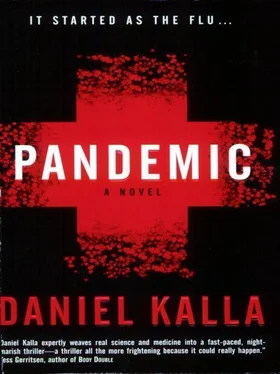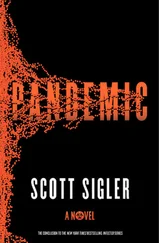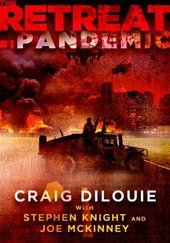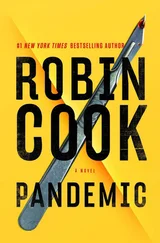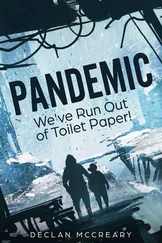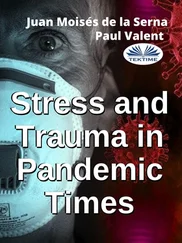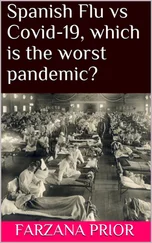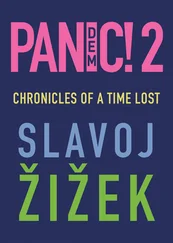“No problems with smallpox,” Gwen said, realizing the irony of her remark but choosing not to rephrase it. “Vaccine production is on schedule. We should have 300 million doses available by spring. The logistics of the vaccination program are still being hashed out. Public Health estimates a minimum of one year to inoculate the majority of the population.”
The group discussed the smallpox vaccination program a few minutes longer, before moving on to monkey pox. Every week the committee covered all the communicable big hitters of bioterrorism: anthrax, botulism, stnallpox, Ebola, cholera, the plague, Q fever, typhoid, shigellosis, brucellosis, and tularemia. The panel cut across all government and scientific agencies. Aside from CIA, FBI, and Homeland Security, there was at least one representative from the Centers for Disease Control, Department of Justice, Department of Health and Human Services, Department of Energy, and the Department of the Environment.
The last item on the agenda led to a sobering discussion on the vulnerability of the East Coast’s water reservoirs to tampering, one of the committee’s favorite topics. And with good reason.
Clive Graves pushed his glasses up the bridge of his nose again and sorted through the notes in front of him. “It would not necessarily involve a significant amount of the botulism toxin either. If they could push the water concentration to a level in the neighborhood of one nannogram per milliliter, we are talking about thousands, potentially hundreds of thousands, of fatalities,” he said in a delivery so flat that he managed to make one of Gwen’s greatest fears sound tedious.
Moira Roberts nodded somberly. “We can only provide so much security for every reservoir in the country,” she said. “This is another example of why it is so vital that we have better information on terrorist activity abroad.”
“Of course, Moira, if only the CIA did our job better we would be worry-free.” Clayton laughed facetiously. “Let’s not forget how long the last batch of terrorists was operating on our soil before they acted,” he said calmly.
Roberts eyed him coolly. “There’s no reason to finger-point, Mr. Clayton. I am merely suggesting that local security alone will not remove the threat.”
“And I am telling you,” Clayton said, matching her clipped tone, “that the CIA cannot track every person on the planet with a petri dish and a hate-on for the States.”
Rubbing her temples, Savard sat back and allowed the heated debate to rage on concerning the level of security at water reservoirs. While Clayton and Roberts squared off, the rest of the group fractured into its usual factions—the scientific and environmental types on one side, the security and military types on the other.
After about fifteen circular minutes, Savard reluctantly cut Clayton off in midsnipe at Roberts. “We’ve only got a few minutes left for roundtable discussion,” Gwen said.
Clockwise, they went around the long oval table. After allowing each of the fifteen members to raise issues and concerns, which in most cases led to venting about budgetary limitations and overstretched resources, Gwen spoke up. “We spend most of our time and energy at this table anticipating terrorist threats from laboratory-generated or artificially acquired agents.”
Gwen scanned the table and noticed several no-shit expressions, but a few faces creased with curiosity. “The most devastating of these pathogens—smallpox, Ebola, and so on—are secured in a very few select labs,” she pointed out. “Moreover, they’re fastidious agents, exceedingly difficult to work with. Now granted, it’s not difficult to get your hands on some of the other organisms in quesdon—anthrax, for example. But those agents are not person-to-person transmissible. And thus far, the distribution methods have been, thankfully, primitive and limited.”
Gwen noticed Roberts fidgeting with the papers in front of her. Clayton leaned back in his chair with hands folded behind his head, but his half smile suggested he might step in with a “get to the point” comment at any moment.
“The recent SARS epidemic got me thinking,” Gwen said. “If I were a terrorist, why would I go to the effort—in most cases futile—of trying to breach lab security?”
“Oh?” said Roberts, skeptically. “What would you as a terrorist do, Dr. Savard?”
She scanned every face at the table before answering. “During the SARS outbreak, imagine how easy it would have been to go to Hong Kong, infect yourself, and then intentionally spread it elsewhere.” She paused before turning to the FBI Deputy Director. “Man-made propagation of a natural epidemic. That, Ms. Roberts, is where I think the terrorists will get the best bang for their buck.”
DOWNTOWN CAIRO, EGYPT
Hazzir Al Kabaal sat in his thirty-second-floor office, gazing out the window. The smog was less of a factor than usual and the Nile wound resplendently below, but the publishing magnate was too preoccupied to notice.
As he had every five minutes for the past two hours, Kabaal hit the “send/receive” icon again on the computer in front of him. Like each time before, all he saw in response was the same frustrating “no new messages” reply.
What is the hold up? he thought for the umpteenth time as he dusted away imagined particles on the sleeves of his navy silk jacket. Vanity was one sin Kabaal had yet to overcome. He rationalized away his hand-tailored Italian suits and hundred-dollar haircuts as necessity, arguing that Mohammed would have understood the need to assimilate among the enemy. But Kabaal worked hard at maintaining his Omar Sharif-like good looks. At fifty, he was still in top physical shape. And he made a point of pride to never be seen publicly unless immaculately dressed.
He tapped the “send/receive” button again. The lack of response was taxing the patience of the man whose patience and resolve had grown to legendary status after he transformed a series of obscure Arabic newspapers into a publishing conglomerate, one paper at a time. As a result, Kabaal wound up controlling a huge sphere of influence in the Arab world while amassing a personal fortune.
Though his papers’ readership was fiercely loyal, running an Islamic newspaper within Egypt’s corrupt autocracy posed a daily challenge. Tacitly, most government officials agreed with his Islamic Brotherhood’s beliefs. Denunciation of Israel was accepted, even encouraged, but the officials showed far less tolerance of similar condemnations of the U.S.A. or Europe. And retribution for criticism of the Egyptian government was swift and harsh. After publishing what authorities perceived as an attack several editors had learned firsthand the brutality of the Egyptian judicial system. Not Kabaal. He had a sixth sense for knowing how far he could push. Or at least, he thought, he used to.
Kabaal tapped the key again, but the screen offered nothing in return. Discouraged, he leaned back in his seat and mulled over the details of his initiative. As he pictured the fallout, he felt the unwelcome twinges of doubt stir inside.
Kabaal knew that few would have considered him capable of militancy. Most people saw him as a progressive Arab businessman. His extravagant wardrobe aside, he’d spent much time in the West. He completed his master’s degree at the London School of Economics where he had experimented with alcohol and Western women who were easy prey for his exotic good looks and worldly charm.
But things had changed since those halcyon student days. Kabaal had reconnected in a far deeper sense with his Islamic roots. And, as he had learned from Sheikh Hassan, with commitment came obligation. Obligation to disseminate the word of God. Obligation to strive for a state where religion and life weren’t forced asunder as they were in the hedonistic West or corrupt Arab monocracies. The Sheikh made it clear that it was Kabaal’s duty to push his brothers, by force if necessary, toward a nation like the Prophet Mohammed’s Al Madinah, where the Shari’ah (or Islamic law) ruled supreme.
Читать дальше
